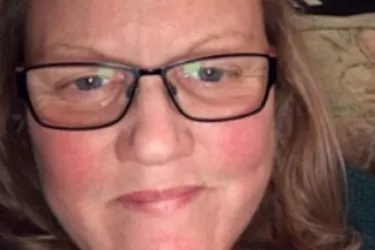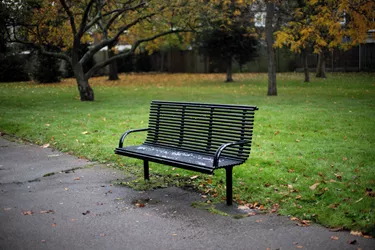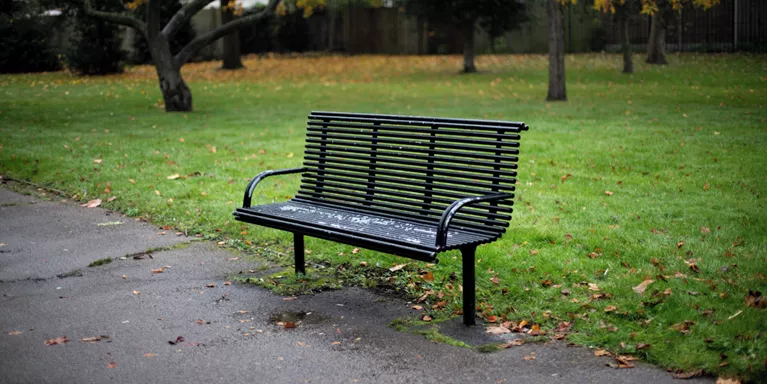An ancient expression eased my lockdown anxiety
Andy blogs about how a simple saying about things being temporary helped him overcome his pandemic panic.
“This too shall pass”. It’s a strange saying when you think about it. At first I wasn’t really sure whether it was good or bad. Do I like this idea? Do I want things to pass? Then I realised it’s not about good or bad, it just… is.
I took some comfort in this phrase as the coronavirus began emerging in the UK and it quickly became apparent that significant changes in the way we live were about to occur. For a few days my anxiety levels went through the roof. News of the NHS fearing it would not cope cut like a knife through any noise about Brexit or the US election. Supermarkets experienced a rush on toilet rolls and pasta. I’m still not entirely sure why. Part of me wonders if some Facebook post about creating a rocket ship out of empty toilet rolls and penne happened to go viral at precisely the wrong moment and any link to panic buying was just coincidental. But anxiety it certainly was. I lost my appetite, experienced extreme lethargy, an unsettled stomach and a regularly elevated heart rate. Signs I have learned to recognise after occasional similar episodes through the years.
I've had occasional issues with anxiety all my life, but I’m lucky that it’s very mild compared to others. There was the odd episode as a child, but really it's been since my first little one came along seven years ago. My wife developed pre-eclampsia and he was delivered just over five weeks early. It caused a lot of stress that took some time to get over. The next major issue came when my second child was taken in hospital at seven weeks with suspected sepsis. She came through fine but I realised my fragile moments come when my kids health is severely at risk.
I became concerned about our food security and access to basic hygiene products.
That was the case again when I became concerned about our food security and access to basic hygiene products. It seemed early in this whole thing that the UK Government plan was for some 80% of us to catch the virus to create herd immunity. If that many people were to become ill, how would the world function? It soon became clear this would cause hundreds of thousands of deaths, perhaps more, and the strategy soon pivoted but my confidence was rocked. At university I learned about Maslow’s hierarchy of needs and this came back to me with alarming clarity. Step one, physiological – food, air, water. Once humans establish this step we move to secure step two, safety – health, employment, personal security. It seemed that over the course of seven days the coronavirus outbreak had, at least for me personally, attacked the very foundations of what provides the security to participate in civilized life. I expect others experienced the same which may have been the cause of the supermarket panic buying.
So in an effort to regain some control I took some proactive steps:
1. No more radio, topical TV or social media.
2. Paid up for a year of the app ‘Headspace’ and began a daily meditation.
3. Worked to ensure food supplies and deliveries for as far out as possible.
The third should not be understood as panic buying. My goal was, and remains, for the family to have what is needed, no more, no less.
I was reminded of the term “this too shall pass”. It had a calming effect.
It was during my daily sessions with Headspace that I was reminded of the term “this too shall pass”. It had a calming effect and I wondered where it may have come from. It felt like something from the bible, though which testament I was unsure. Google solved the problem and showed up a Wikipedia article citing that it is in fact a Persian adage that first appeared in writing during medieval times. Ancient yes, but as I looked into it, I recognised the idea is one that perpetuates throughout the ages. The idea that the nature of the human condition is temporary.
Temporary? I thought to myself. Surely not. We establish foundations, securities, rocks that we can cling onto in life that enable us to build and flourish. How can these things be temporary? It’s only when you take a step back you see how true this is. How things change over your lifetime. How they have changed over the past 100 years. How geographies, politics, even the temperature of the earth are all constantly changing. Meditation helps with that idea. Recognising what is going on around you at any given moment enables you to focus on that moment, and not be consumed by the past or concerns for the future.
It was the realisation and acceptance of this idea that enabled me to regain control.
It was the realisation and acceptance of this idea that enabled me to regain control. I got back on top of the anxiety. I reminded myself that there are things I can control and things that are beyond my control.
Things I cannot control:
- The speed at which coronavirus spreads throughout the world.
- How well or otherwise people cope with the virus.
- The supply chain to ensure food is delivered to the supermarkets.
Things I can control:
- The level of risk I expose myself and my family to.
- Levels of effort to obtain the necessary food and medical supplies.
- Putting a smile in the faces of my children.
Smiles… at a time like this. Though of course, to them it’s just another thing the adults are dealing with. I reminded myself that I was in the best position out of anyone to put smiles on my children’s faces, make them feel warm, safe and loved. So, I focused on that. I do focus on that. Every day I think, what can I make them laugh about today? What memory can I create?
Lockdown is beginning to ease but I still do not know if we will get away to Cornwall as planned for the summer or if I’ll be able to meet my work colleagues in person at any point this year.
But that’s OK, because what I do know is, this too shall pass.


Information and support
When you’re living with a mental health problem, or supporting someone who is, having access to the right information - about a condition, treatment options, or practical issues - is vital. Visit our information pages to find out more.
Share your story with others
Blogs and stories can show that people with mental health problems are cared about, understood and listened to. We can use it to challenge the status quo and change attitudes.

















